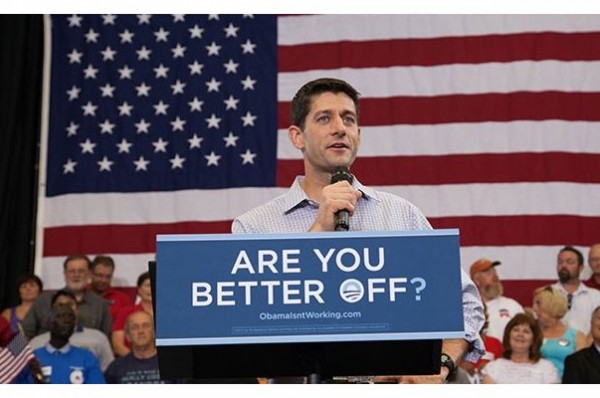Are We Better Off Now Than We Were Four Years Ago?


"Are we better off now than we were four years ago?" This question has become somewhat of a negative mantra for Romney campaign strategists. They hope voters will agree that they are not better off.
The question is a reiteration of the 1980 election when Ronald Reagan posed the same question to voters disillusioned with Jimmy Carter. Reagan went on to win the election and become president. Mitt Romney's campaign hopes asking the same question will help him win too.
It is an interesting question for a variety of reasons. It points out the importance of narrative in a political campaign. The question can be interpreted in a multitude of ways, but within the framework of political success or failure, its relevance only lends itself to one interpretation. In this instance, context is important, and those who would pose the question in a negative way have chosen to ignore the original syntax of the question.
There is a startling difference between asking if Americans are collectively better off today as opposed to four years ago and asking people as individuals if they are better off now. Historically, the answer to the first question is usually "Yes." Unfortunately, for Democrats, recent polling suggests that a portion of Americans do not currently share this sentiment. They believe that voters are worse off now than they were four years ago.
Far afield from Joe Biden's mantra of, "Osama Bin Laden is dead and General Motors is alive," there is a wealth of information to suggest that as a country, America is in a better position than it was four years ago during the peak of the financial crisis.
What remains to be seen is whether President Obama is directly responsible for these economic woes as his opponents would have voters believe, or if he was inaugurated under one of the worst crises America has ever known and has been integral in facilitating its recovery, as Democrats would describe.
Here are some of the most important points in this debate:
- The economy is growing, and has, in fact, added jobs every month since March of 2010. Since the beginning of this year, the US has averaged 139,000 new jobs per month. Unemployment now sits at 8.1%
- Taxes are lower for 95% of Americans and remain near those historic lows, allowing the middle class to spend and grow.
- Healthcare reform has given more Americans access to affordable insurance, including 2.5 million students who now have access to insurance. The CBO also predicts the law will help provide insurance to 16 million more Americans.
- The unpopular move to bailout the auto industry secured over a million jobs, especially in manufacturing.
Perhaps the most important point to be made is that the economy is growing again, and is expected to continue to grow for the next four years. Independent firms have predicted that the economy will add close to 12 million private sector jobs in the next four years, which would put a large dent in the unemployment rate.
Compare these statistics to the other side of the argument, in which it is suggested that Americans are worse off than they were four years ago:
- Unemployment is still historically high and has been slow to decrease.
- Compared to recovery from other recessions, the economy is not bouncing back quickly.
- Median household income is down especially for lower and middle class families.
- Health insurance premiums are rising. While this is a legitimate criticism, it is difficult to blame on the current administration, given that health insurance premiums have risen every year since 2002.
- Gas prices are historically high. Again, while true, this is difficult to attribute to the president. Domestic crude oil production has actually increased under President Obama, and that is aside from the fact that the price of gasoline is determined by a complex oil futures market that is largely outside of his control. Explained simply, the United States produces incredibly little of the global crude oil supply, and consumes a vast amount of it. This makes it vulnerable to greater market trends that the president has no control over.
There are plenty of legitimate criticisms to bring against President Obama. Some voters do not like his choices regarding social policy, his lack of a meaningful response to illegal immigration, and his decisions to have the government intervene in the private sector. Criticisms aside, with respect to the economy, it is difficult to argue with the results.
The economy is undoubtedly better than it was four years ago. Instead of bleeding jobs, it is adding jobs, more Americans have access to health care, and taxes are as low as they have been in 50 years. Therefore, to the question: "Are we better off now than we were four years ago?" the answer appears to be "Yes."



